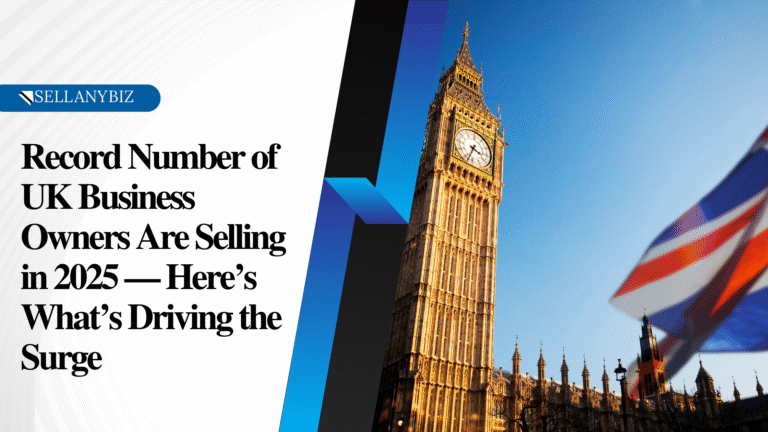If you want to open a physical store in the United Kingdom, you’re not the only one. Even though online shopping keeps growing traditional retail still thrives in towns where people walk around, communities are strong, and the local economy is good. Picking the right town out of hundreds can feel tricky. So how do you find the ideal spot in the UK to start your retail shop?
In this blog post, we’ll explore the most promising locations, key factors to consider, and why certain towns stand out from the rest.
Why Picking the Right Spot Still Matters in Retail
Location plays a big role in building a solid retail strategy. While online shopping brings ease physical stores offer something online platforms cannot—a real hands-on experience. Shopping streets, town centers, and retail areas let people connect, discover brands, and make unplanned purchases.
Picking the right town goes beyond just worrying about rent prices. It requires looking into things like foot traffic, shifts in local demographics nearby competitors, and chances for growth.
Best Towns in the UK for Opening Shops
Here’s a rundown of some of the best places to open a shop in the UK:
- York
York ranks as one of the most famous places to visit in the UK attracting millions every year. A lively mix of locals and visitors gives the city a unique buzz. The Shambles, with its old stone streets, stands out as a prime spot for small shops, cafes, and handmade goods. York blends history with modern business creating a shopping vibe unlike any other.
Why York?
· Lots of residents and tourists provide steady foot traffic
· Thriving economy supports local and independent shops
· Beautiful streets and historic appeal make people return
- Brighton
Brighton stands out because of its vibrant atmosphere and mix of people making it a favorite spot for shopping. Independent and eco-conscious brands thrive here in the North Laine area. This part of town is filled with unique stores, vegan eateries, and sustainable shops. Brighton’s modern culture and residents with plenty to spend make it one of the best retail hubs in southern England.
Why choose Brighton?
· A supportive network of independent businesses
· A packed and youthful population
· A tourist hotspot with events happening all year long
- Bath
Bath, a UNESCO World Heritage site, attracts not just history lovers but shoppers with deep pockets. It draws wealthy locals and tourists who enjoy luxury, wellness, and stylish designs. This makes it a top spot to open spas, boutique fashion stores, or artisan shops. Businesses here gain from a constant flow of visitors looking for exclusive and top-tier offerings.
Why choose Bath?
· Rich customer demographic
· Beautiful architecture and easy-to-navigate streets
· Great fit for upscale and lifestyle-focused retail
St Albans, located a brief train ride from London, blends suburban charm with strong retail opportunities. Its educated and affluent residents create a good environment to start health, lifestyle, or niche shops. The busy weekly market attracts regular crowds adding even more potential for retailers.
Why Choose St Albans?
· Near London but comes with cheaper running costs
· Local businesses receive great community backing
· Residents here have higher-than-average spending power
- Chester
People tend to overlook Chester, though they shouldn’t. Its historic Rows, which are two-level shopping galleries, make Chester one of the most distinct places to shop in the UK. It ticks the boxes for fashion outlets, jewelry shops, or home-related stores hoping to win repeat customers and pull in tourists.
Why Opt for Chester?
· Eye-catching buildings that bring in shoppers
· Combines traditional shopping with modern touches
· Built on a solid tourism industry
Things to Think About Before Picking a Town
It’s crucial to assess some key factors before signing a lease.
- Footfall and Demographics
Figure out who lives or spends time in the area. Are the people families, professionals, retirees, or students? Pick a spot where the people in the area match the kind of customers you want.
- Nearby Competition
Check out businesses around you. Is the market crowded with stores like yours, or is there a space you can fill? A bit of competition can be a good thing, but too much might make it harder for your store to stand out.
- Rent and Running Costs
Focus on what you can afford. Higher rent in busy spots might pay off if sales are strong, but a cozy location away from the main road might make managing costs easier in the long run.
- Business Rates and Local Rules
Research the town’s business rates, licensing rules, and support options available to launch new businesses. Some local councils provide grants, mentorship programs, or startup-friendly incentives.
Online Presence
Having a digital presence matters even for physical stores. Towns popular with tourists or digital nomads tend to generate online reviews and frequent Google searches like “top store in [town name].”
Up-and-Coming Towns to Explore
While the towns listed earlier are already well-known, some emerging spots are expanding due to better affordability and regional investment. Think about:
· Frome Somerset: Famous for its creative vibe and artisan markets.
· Hebden Bridge, West Yorkshire: A small place with a thriving arts culture and independent flair.
· Margate in Kent is buzzing with new businesses and art galleries bringing fresh life to the area.
Final Thoughts
Picking the best UK town to launch your physical shop depends on your kind of business, your brand’s vibe, and how much you’re ready to spend. Towns like York, Brighton, and Bath draw in large customer crowds and offer great visibility. On the other hand, places like Frome or Margate let you create something unique and rooted in the local community.
Deciding where to set up shop is a big deal. But with careful thought and matching your business to the right market, your store could do well in today’s shifting retail world.
Ready to move forward? To get started, gather footfall data, explore these towns firsthand, and reach out to Sellanybiz before diving in.
The shop of your dreams could be as close as the next postcode.























